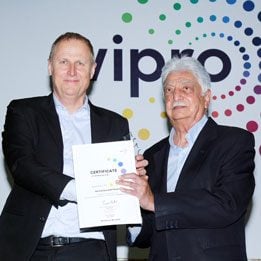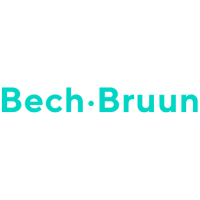

| Wipro Technologies & Designit


Wipro Technologies & Designit
Team size: Four
Can you give an idea of the most significant cases or transactions that your legal team has recently been involved in?
Wipro’s Nordic business has been significantly growing year over year. The Nordic Legal team, led by Henrik Hoyer, has played a pivotal role in negotiating and adding a significant number of new logo’s to the Wipro contract portfolio during 2022/23, making the Nordics a growth pocket for Wipro. Except for a few planned exits, then existing contracts were extended and/or renewed. Furthermore, there is a promising list of potential new contracts in pipeline. These results coupled with Henrik’s education, experience, competencies, and motivation has led to the achievement of the so-called Growth Accelerator Award issued by Founder and President Azim Premji for Raising the Bar.
Looking forward, what technological advancements do you feel will impact the role of in-house legal teams in the future the most?
Personally, Henrik has, in cooperation with other Nordic peers, since 2017, asked approximately 400 GCs in the Nordic regions about how they run the legal department, with a particular focus on technological development. Each year, the results have been published in a Nordic General Counsel Report and presented at the Nordic Legal Tech Day Conferences.
Technological advancements are celebrated each year at conference in the form of the Danish Legal Tech Award which is arranged by Henrik in cooperation with the Danish In-House Lawyers Association (DVJ), the Danish IT Industry Association (IT-Branchen) and the Danish Lawyers Association (Danske Advokater). Ask yourself the basic question of what can be automated, what can stay in-house, what can be outsourced and what can be out tasked. The technological advancements that will impact the in-house legal teams may differ from company to company, sector to sector. In the past, digital legal initiatives were scarce. Some companies automated their NDAs in the early legal tech days. Today this can be done easily by every company. Now legal transformation is starting to appear in many different areas of the law.
Some companies have introduced legal chat bots to give basic legal advice. Other companies are documenting their assts with blockchain technology. Anti-money laundry documentation is being checked and validated against official data in real time. Compliance issues are dealt with in governance risk and compliance (GRC) tools. Contracts have long since matured for digitisation, and since the EU has introduced legal standards for both simple and qualified digital signatures, it has only become easier. If you couple the legislative advances with the technological advances in AI, machine learning, deep learning and generative AI then we are up for some interesting legal tech developments which will impact not only the in-house legal teams going forward but also the way companies do business. The lower the complexity of the service, the easier it is to automate, and the higher the complexity of tasks and cases, the more highly specialised lawyers are needed.
With the influx of automation, it is to be expected in the long term that several junior and senior legal positions will be abolished in favour of non-legal personnel such as project managers, legal tech specialists and IT staff. Companies hesitate to invest in Legal transformation despite the return on investment into Legal transformation is well documented. If the in-house legal team do not undergo legal transformation in time, then outsourcing partners will enter the scene with attractive outsourcing proposals.
How do you suggest in-house departments build strong relationships with business partners?
Strong businesses focused on collaborative relationships with colleagues are generally built when you overcome obstacles and create commercial advantage while minimising exposure to liability and risk. The strongest relationships are in my view created when you successfully accelerate and grow the business in parallel to articulating legal advice clearly within the business context. In my case it all starts with building the personal relationships at local and regional level.
Naturally, it helps if you can represent Legal at the leadership meetings. It is generally appreciated when you leverage those relationships with a view to constructively challenge the way the business views issues and opportunities. Jump into the discussions and play a key role in those business debates, strategy developments and business decisions. Remember, you are not paid to make “grey” advice. Always frame the key legal issues in a clear and precise way for your colleagues and business partners. Thereafter, inspire confidence in your personal and professional command of the issue. Work with colleagues to minimise exposure to liability and risk. If you can combine your legal and business skills to identify opportunities for commercial advantage, then you are set up for success.
To be successful in building strong relationships with my business partners I try to raise the bar by: Managing for value; Master my functional legal capabilities; Give local and international perspective; Live my leadership imperative behaviours; Show potential and drive the business in a legal and ethical way; Bring core legal and managerial skillsets into action. When doing that, the track record of performance will build itself and even stronger relations are obtained. However, I am always mindful that my job requirement may change from day by day according to managements and business partner’s needs. My legal and managerial skills (including what to automate, what to fix in-house, what to outsource and what to out-task) need to grow and match. Likewise, my team’s legal skillset and knowledge need to grow and match what will stay in-house. This is how I try to raise the bar and run effective legal operation(s) while being a growth accelerator for my business partners.
If you had to give advice to an aspiring in-house lawyer or general counsel, what would it be and why?
Be a business enabler. Become the department of “yes” by steering your business partners in the right direction. Always ask yourself the basic question of what can be automated, what can stay in-house, what can be outsourced and what can be out tasked.